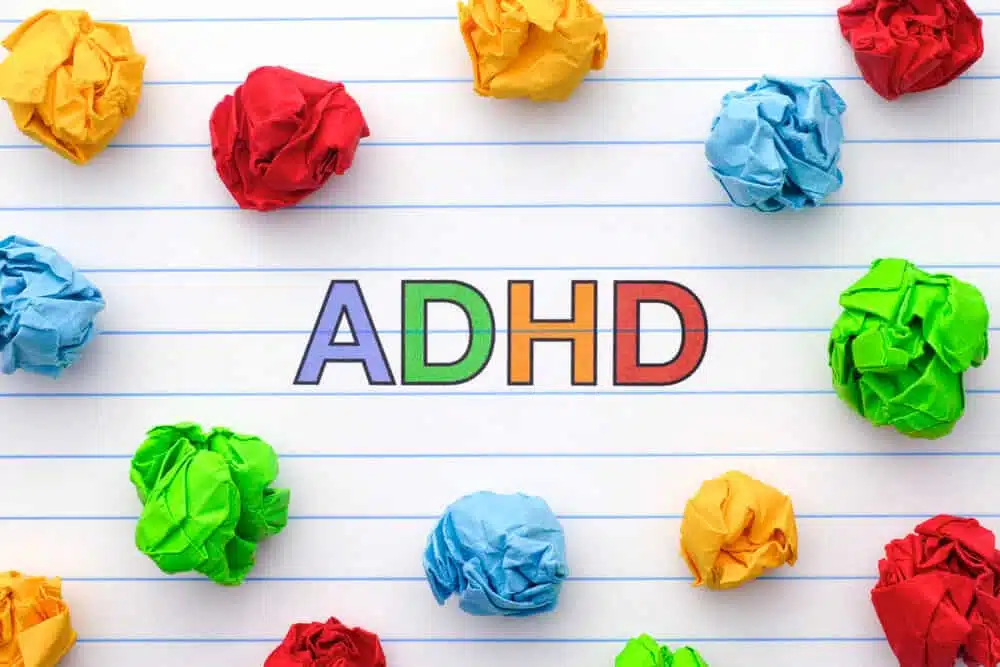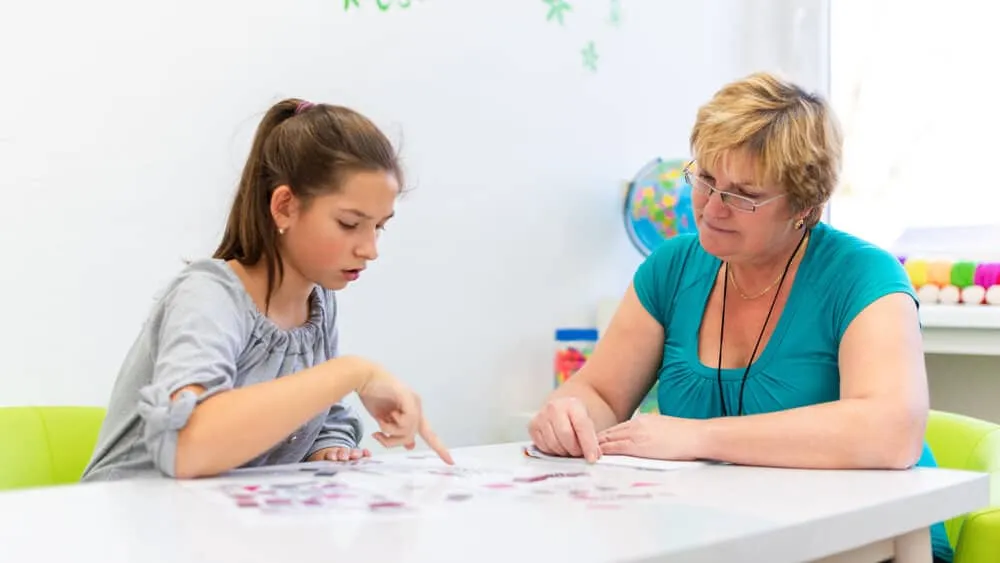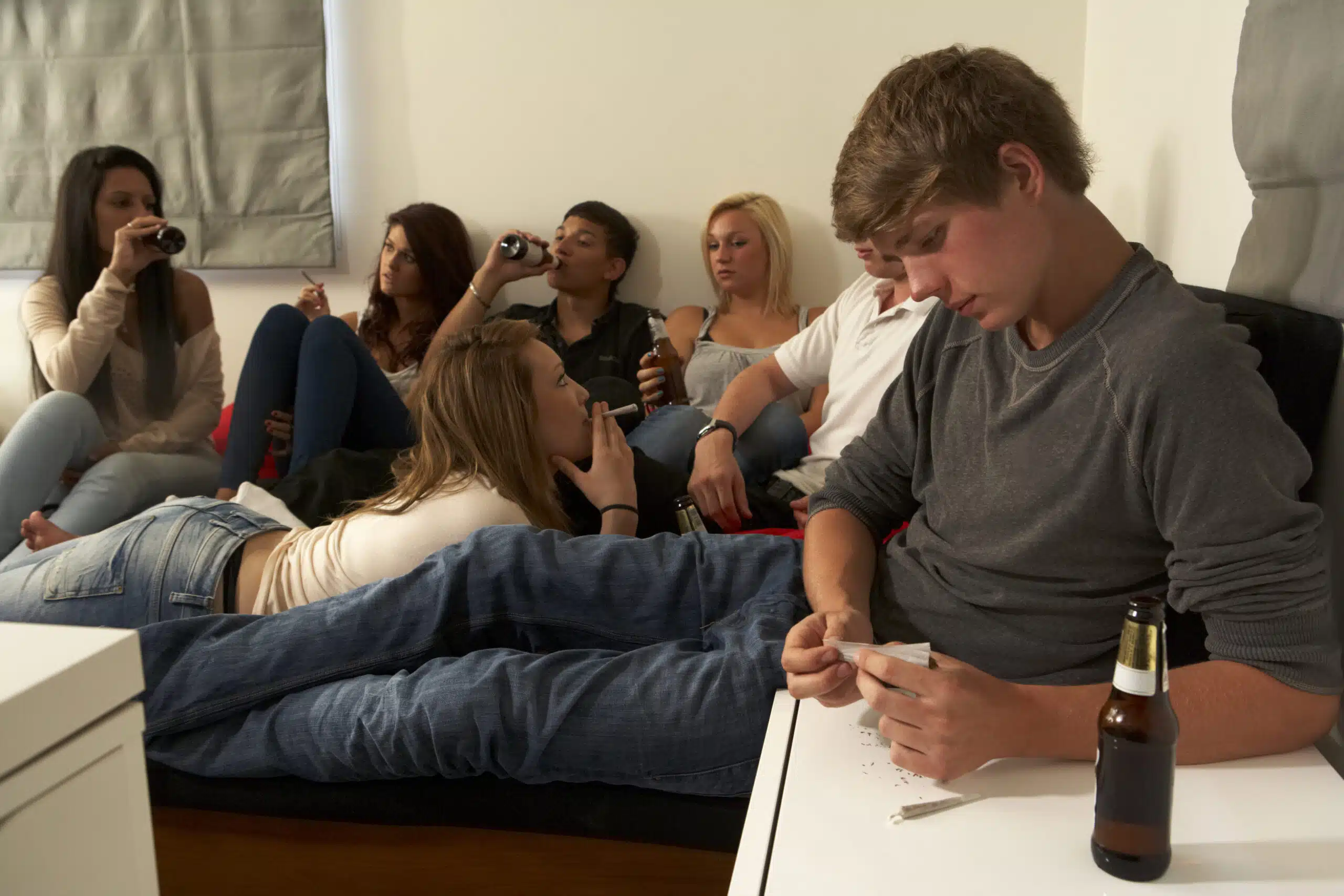
How Does ADHD Affect Teenagers?
- ADHD
- September 23,2024
- BY Beachside Teen Staff
- 0 Comments
How Does ADHD Affect Teenagers?
Attention Deficit Hyperactivity Disorder (ADHD) makes life for a teen incredibly difficult on multiple fronts. The disorder itself makes it nearly impossible to focus on tasks, concentrate on studies, and pay attention for extended periods of time. Teens are already living under high levels of pressure and stress; having ADHD only makes it worse.
According to the Centers for Disease Control (CDC), ADHD is a very common neurodevelopmental disorder in children that can extend into adulthood. Kids and teens with ADHD can’t pay attention, have trouble controlling impulsive behaviors, or are overly active – they simply cannot sit still.
Many parents and teens alike wonder: Is ADHD neurodivergent? The answer is yes—ADHD is recognized as part of the neurodivergent spectrum. Understanding how ADHD fits within neurodiversity can help parents and educators develop effective support systems. Read more about Is ADHD Neurodivergent? to explore how neurodiversity impacts learning and daily life.
Educational Challenges
Going to school, for a teen, has its own unique challenges. But for the teen with ADHD, learning is especially difficult because of the inability to focus and concentrate. The classroom environment can pose challenges for a teen with ADHD. The common tasks these teens find the hardest—listening quietly, sitting still, paying attention, concentrating on assignments—are the ones they have to do for the entire school day. These teens want to learn and be like their normal peers. The neurological deficits of ADHD, not an unwillingness to try, keep these teens from learning in traditional classrooms.
There are specific behaviors that teens with ADHD may exhibit in the classroom that are certainly not meant to be disruptive or rude – it is simply that they cannot keep themselves still. Some of the things fellow classmates or teachers may notice include the following:
- distracted by windows, other kids, interesting posters on the wall
- difficulty focusing on class lectures or worksheets
- difficulty sitting still
- talking out of turn
- poor organizational skills (forgetting homework or misplacing important papers or folders)
- poor fine motor skills (makes note taking and writing assignments very hard)
- difficulty following instructions
- difficulty completing long term projects independently
These signs would show up in pre-school or elementary school, between the ages of 4 and 7. If your teen had these behaviors early, he or she wasn’t misbehaving. They were simply trying to cope with the ADHD.
Moving from elementary school to middle school is especially challenging for kids with ADHD. The jump from one primary teacher to six or more subject specific teachers — and multiple classrooms, varying assignment timetables, and unique classroom rules — is particularly difficult for teens with ADHD “who struggle with executive functions, planning, and organization. For kids with weak impulse control, mastering the expectations of one teacher is hard enough — now, they will face new class rules every hour.”
Several accommodations are useful for ADHD students in the classroom setting:
- Preferential seating – ADHD students in the front row, close to the teacher, and away from windows and other distractions
- Oral and written instructions – Both will ensure the student is clear on expectations
- Break down assignments – Break down tasks into manageable pieces with specific dates for each goal
- Highlight key points – Highlight important words in the directions on worksheets and tests
- Use assistive technology – Use of technology makes the learning process more visual
- Extended time on tests – Reduce timed tests and/or provide extended time
- Copies of teachers notes – Some ADHD students benefit from a copy of the teacher’s lecture notes
- Supervised organization – Students with ADHD benefit from a supervised daily cleanout of the backpack and desk to learn organizational strategies
- Manipulatives for understanding – Number lines, math manipulatives, word banks and color-coded spelling words are useful
- Provide checklists – Detailed lists for homework assignments, organization, study skills, and checklists of frequently made mistakes
With such accommodations, students with ADHD are much more likely to succeed academically, but they may still have social challenges to contend with.
Social Challenges
The social environment for teens is generally two-fold: home and school. Some teens also hold down jobs. Each of these environments presents its own challenges, from finding a clique at school to dealing effectively with co-workers. Even family dynamics are challenging if there is an unstable situation in the home.
But, where teens spend most of their time is at school or school activities, so it’s essential that they understand their condition and learn to cope with it in social situations.
It’s important that you have a discussion with your child about potential social challenges. These could include finding a friendly table at lunch, attending a sports event, or attending a social function like a school dance. You can role-play possible solutions with your teen before he or she is in that situation.
Encourage your teens to join clubs, teams, or organizations where they can meet other teens who share similar interests. If your teen reports being bullied, take it seriously, notify the school, communicate with your teen’s teachers, and ensure the administrators respond properly. You can also gather together your teen’s friends and tell them what is happening. Encourage them to create a barrier between your teen and the bullies – to stand up for your teen as his or her “squad”.
However, we must acknowledge a sad truth here: “Fifty-six percent of children with ADHD have no reciprocated friendships, which is almost twice the number of typical children without friends. Even when kids with ADHD do have friends, these friendships tend to be of lower quality and less stable than those of typical children.”
Because teens with ADHD demonstrate certain undesirable behaviors, or tend to cause trouble, other teens will shy away from them. Ask your teen about his or her friends. Ask to meet them. Talk with other parents and educated them about your teen’s behavior.
Once you can educate others about your teen’s unique character, the ability to keep and maintain friendships for your teen should improve. This series of having friends and then not having friends and then having new friends is emotionally difficult for the ADHD teen to handle.
Emotional Challenges
Every teen has emotional ups and downs. However, teens with ADHD have trouble managing their emotions. “Researchers and professionals who treat kids with ADHD often report that emotions play a big role in the daily difficulties kids face. Kids with ADHD don’t have different emotions than other kids. They feel hurt, anger, sadness, discouragement, and worry just like everyone else does. What’s different for many kids with ADHD is that these feelings seem to be more frequent and intense. They also seem to last longer and get in the way of everyday life.”
Teens with ADHD can experience the following:
- Be quick to get frustrated by minor things
- Have trouble putting the brakes on their feelings
- Worry too much or too long about even little things
- Struggle to get excited when bored
- Have trouble calming down when they’re annoyed or angry
- Feel wounded or offended at even gentle criticism
- Feel excessive urgency to get something they want now
In this society of instant gratification, that last emotional challenge is especially relevant. For teens with ADHD, the urge for instant gratification can be far more powerful, often leading to full-blown tantrums—even in older teens. Emotional dysregulation is just one of the many challenges faced by teens with ADHD, including hyperfixation, which can further complicate their emotional and social experiences. Learn more about hyperfixation in teens and how it relates to ADHD.
As parents and loved ones quickly learn, ADHD creates problems with self-control, and managing emotions is part of that challenge. Teens with ADHD often lack inhibition, which negatively impacts executive functioning—our brain’s self-management system that helps us plan, complete tasks, and regulate emotions.
Most teens with ADHD don’t have the emotional maturity – or even the ability – to control their feelings. If their emotions are overwhelming their ability to make sound judgments, plan things, or manage their life, they will throw fits or temper tantrums out of frustration. They aren’t bad kids – they simply can’t make their brain do what they want it to.
Family members and friends can play a major role in helping a teen regulate emotions and deal with unstable situations. It is important to help teens understand their feelings so they can identify their emotions and accurately put them into words. You may have overheard a parent or caregiver say to a child having a fit, “Use your words.” They are trying to help the child understand emotions and react to them appropriately. To help a teen with ADHD emotional issues, experts recommend the following:
- Talk about your own emotions and label them appropriately
- Encouraging teens to talk about their own feelings and attach names to them
- Help them understand that it may not always be okay to act on feelings, but it is always okay to talk about them
- Avoiding saying things like “Don’t be sad” or “You shouldn’t be angry about that,” because feelings are normal and should be validated
- Model good emotional self-control; avoid yelling and threatening
- Praise your child’s efforts to calm down, even when your teen is unsuccessful
Don’t automatically assume that your teen with ADHD will be incapable of handling emotions. It just takes practice and a patient, understanding caretaking group. And if that weren’t enough for the teen to deal with, there are physical challenges to ADHD as well.
Physical Challenges
Teens and children with ADHD tend to fidget. They have a great deal of trouble sitting still and maintaining focus. They feel like they have all this pent up energy that needs to be released. Imagine sitting at your desk trying to complete some work and all the while your body is twitching, and your mind is jumping around from one idea to the next to the next. Out of sheer frustration, you may jump out of your chair and take a walk or do some other physical activity to burn the energy.
To release that restless energy, teens with ADHD need plenty of exercise. Researchers tell us that keeping teens with ADHD active not only lets them burn off steam, but it also can help with certain behavioral issues, such as lack of focus, poor social skills, and impulsive behaviors.
When used along with traditional ADHD treatments, regular fitness can have a positive effect on a teen’s symptoms. The experts recommend that teens and children with ADHD exercise at least 60 minutes a day. How they get that exercise — bike riding, dancing, swimming, playing soccer, running – is irrelevant.
Some evidence suggests that getting outside and experiencing nature can bring calm to teens with ADHD. And exercise isn’t just good for building muscles or burning off energy. It can help with brain function as well.
When we exercise, the number and mix of neurotransmitters our brains release changes. These neurotransmitters include dopamine, which helps with attention span. The meds used to treat teens with ADHD increase the amount of dopamine in the brain. This means that a workout can have many of the same effects on teens with ADHD as the drugs they take for the condition.
And while physical activity can be both a positive and negative thing in teens with ADHD, one thing that many parents and teachers don’t consider is how gym class can be viewed by teens with ADHD.
For many teens, including those with ADHD or other learning challenges, gym class is the worst part of the day. “Organized sports are minefields of potential embarrassment for kids who struggle to remember multi-step directions, aren’t comfortable with physical contact or just aren’t as coordinated as their peers.” So while physical activity itself can improve ADHD symptoms, things like organized games or sports, with rules and multi-step instructions, are a nightmare.
One recommendation is that students with ADHD spend their time in gym either coaching with the teacher – keeping the teen involved but not responsible for good performance on the field- or spend time doing an individual activity like calisthenics, weight training, or running on the track.

Conclusion
Teens with ADHD have a difficult life. Their brains and bodies betray them from the moment they get up in the morning, until the moment they lie down in bed at night. Giving them understanding, patience, and coping skills will help them face the everyday challenges that make their lives with ADHD hard to live.
Take Our Free ADHD Test
Are you wondering if your teen has ADHD? Take our self-test for parents to assess whether or not your child has signs of ADHD.




